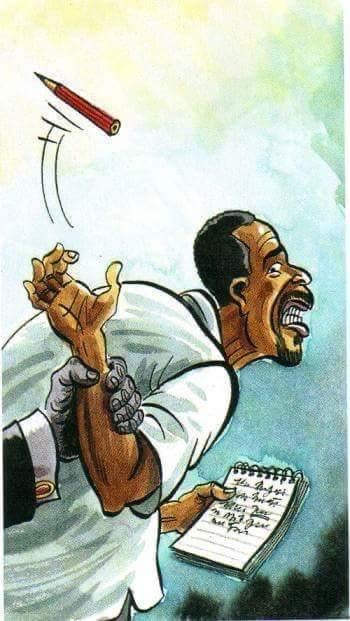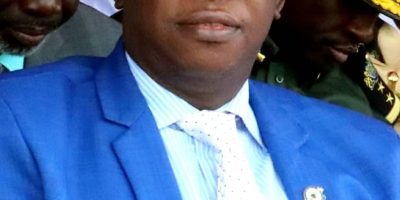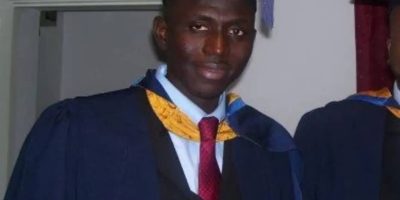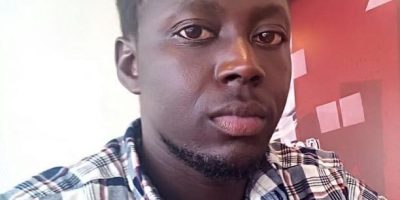Alagi Yorro Jallow
 Fatoumatta: What kind of folks are teaching journalism in the Gambia? Is a Master’s degree the only requirement to lead? Master’s degree qualification is suitable for a beginner. However, since journalism is a craft, there should be a balance between these scholars and seasoned media practitioners with professional experience working in media, audience growth! It would be better for journalism schools to encourage students to take other professions besides journalism to make them authorities in their fields.
Fatoumatta: What kind of folks are teaching journalism in the Gambia? Is a Master’s degree the only requirement to lead? Master’s degree qualification is suitable for a beginner. However, since journalism is a craft, there should be a balance between these scholars and seasoned media practitioners with professional experience working in media, audience growth! It would be better for journalism schools to encourage students to take other professions besides journalism to make them authorities in their fields.
Performance is not everything. One needs vision and a broader picture of what they are doing. That takes expertise, theory, and leadership, which come from education (not simply schooling). However, Gambians have contempt for training, finesse, and expertise. They think education is for certificates, not for perfection. The fiasco in our journalism home and the diaspora is proof. It is not a myth non-journalist performs the journalistic function; there are so many media practitioners without the requisite training, but in a situation where goats’ masquerades as journalists, we know that we have a real problem in The Gambia.
Fatoumatta: One of the most admirable qualities of American journalism is the deep analytical approach to issues. I have been more impressed, especially by female commentators whose grasp of economic and political affairs is so deep, rich, authoritative, it leaves you begging for more. Female columnists are my favorite reads presently. Even better, everything in America, and indeed in the West, is viewed from the angle of either left or right: meaning the ideologies that individuals subscribe to.
When I joined the prestigious Nieman Fellowship at Harvard Foundation for Journalism class of 2007, the first day at school, I was immensely impressed by the young fellows on our first day at the bar. I remember the guys from the Asia and Europe breaking it down to me how newspapers equally align themselves ideologically. Wished the same for the Gambia, but it is just that: a wish.
My fellow students, most of them in their early 30 and 40s, identified either as republicans or democrats (they use the left to describe the democrats and the right to define the republics); there are different shades of each ideology depending on how far in the left you are or how far right. For instance, Bernie Sanders is hugely on the left, and he is called a socialist. Up to about the last election, it was inconceivable that his ideas were even be mildly entertained. It is hard to classify Trump since he is not a model republican. He has been a Democrat in the past. However, as a native New Yorker, he has liberal views on some key issues such as gays, abortion, and such that demarcate the boundaries between the liberals and conservatives. He has flip-flopped as all politicians do, but Senator Marco Rubio and Senator Ted Cruz come across as extreme. In their eyes, Barack Obama, despite the apparent achievements, is a colossal failure, a curse that they cannot stand a minute any longer. The anger and hatred they spew at Obama are almost racist.
Nevertheless, this is about American journalism. Journalism here is a serious craft. Even the way we are taught at school is so thorough, meticulous, and it leaves me wondering if the Gambia will ever come close to this. However, there is nothing magical they do. The schools are equipped better, and professors here have to show up in class and do their job. They are just that serious.
Fatoumatta: Sometimes, when I get my scripts back, they are painted red all over with the professor’s unforgiving pen; it can make you lose confidence in yourself. The professors are so experienced, and you cannot ever misplace a comma or misuse a white space on the page.
What makes American journalism great is that, mostly, it is the best students who get to go through the best journalism schools. Generally, journalism is not a cadre below Law. In liberal arts, journalism is highly valued. Besides, it is sometimes taken as a second degree. So if you are studying computer science, Law, engineering, and you do not feel like being an engineer, you can take journalism as a complementary degree. That means you will go into the media to write and report about engineering stuff. That means you will be knowledgeable enough to break down complex engineering problems to the public using the skills you learned at the journalism school.
Alternatively, if you opt to do a journalism degree exclusively, you have to specialize in something at the end. Furthermore, the way America is structured, anything that looks like it can be quantified can be made into an area of specialization. Hence some students specialize in Asian studies, Middle East, African affairs (where specific countries in African like the Gambia, Senegal, and Ghana are touched on in great detail), terrorism, etc. They are at the school, and there are specialization classes on China, Presidential campaigns, and even Campaign funds.
Suppose I will transfer this to the Gambia. In that case, it means, for instance, we should have a bunch of Gambian journalists who specialize in corruption scandals as an independent unit, African Affairs, DRC conflict resolution, Ethiopia ( as emerging power), South Sudan, Electricity, Health, environment, etc. This means you have people either with a degree in something else who gets a complementary journalism degree or those who go to journalism schools and get a chance in their third year and fourth to pick a specific line and become the best in it.
Ultimately, these journalists in America end up writing books, commentary in newspapers, and a host of websites, contribute to podcasts, enriching the American media experience.
This is a far cry from the Gambia, where FM stations are disastrously empty. Besides talking trash and marketing airtime and other stuff, you gain absolutely nothing from listening to any Gambian radio. Yet even 30 minutes with BBC, VOA, NPR or Deutsche Welle, or France 24.
Fatoumatta: I believe that journalism, even in reporting, a country and journalist must be ideologically aware and conscious of its interests so that both the media and the citizens transmit and interpret information within their interests. In our school of journalism and training centers, it is time to start pan-African studies minor offering a course on “Writing and Reporting on Africa.”
Moreover, journalists go to extra lengths to ensure that you learn something new every day. Gambian TV is no longer inspiring. There is no single reporter in the Gambia who is an authority on anything. Most of them report, and that is all. That is why Gambian news is so flat, yet they make it insufferably so long. I am not saying that Gambian journalists do not know their job. However, they sell themselves too cheap. Furthermore, that includes me (not now am retired). I am not holier than thou. I am just as crappy, guilty as charged, but all I do is write about the easy stuff in my defense. I have never aspired to write deep economic and complex stuff—story for another day.
The problem starts with the training. I doubt if a university in the Gambia fully equips journalists to be more than just conveyors of news. There are other things beyond the information; analyses, investigations, politics, economics, and the sociology and psychology of all the happenings that must follow.
In the Gambia, they rarely do. Furthermore, when they do, there is no heart. Or conviction, both in the journalist’s eye and on the expert’s part.
This is a faculty of journalism at the University of the Gambia. It was the first time a public university offered an exclusive journalism degree and the Gambia Press Union training of journalism.
At any rate, the University of the Gambia offered a journalism degree. Still, it is generally considered a cash cow (those courses that the University uses to mint money out of the public. As to whether they meet the quality standards is another thing. So people paid through their mouths, but the quality of the degree is not the best since the University lacked essential tools and equipment, and there was not much promise that they will ever buy the stuff. So a graduate from the University.
School of Journalism with just a diploma is better qualified than a University graduate with a fancy degree. Besides, those from the University with a degree were supposed to be at least to be analytical, more knowledgeable, better exposed, but unless an individual took his or her initiative to figure his or her away out, it was impossible to account for the two years the students spent at the University.
Bottom line, if we have to rescue the declining standards of journalism and other courses, the University and the Gambia Press Union must invest in modern equipment, properly equipped studios, insist on high academic merit during intakes, consider those who seem to be talented, but not equally as gifted and teach them all the best there is of journalistic skills.
An Information and Technology professional with a postgraduate qualification or diploma might be better placed to handle ethics, information, and news writings and publications. Again, traditionally, journalism is equally both an art and craft: we focus on delivery, not what you claim you can do!
Fatoumatta: It will take time, but for the next many years, expect less than average if mediocre reportage, even as newspaper circulations shrink, TV audiences plummet. Fewer media houses adapt to new technology, quick enough to avert the impending crisis. It can be done.




Ma sha Allah great and thanks for sharing